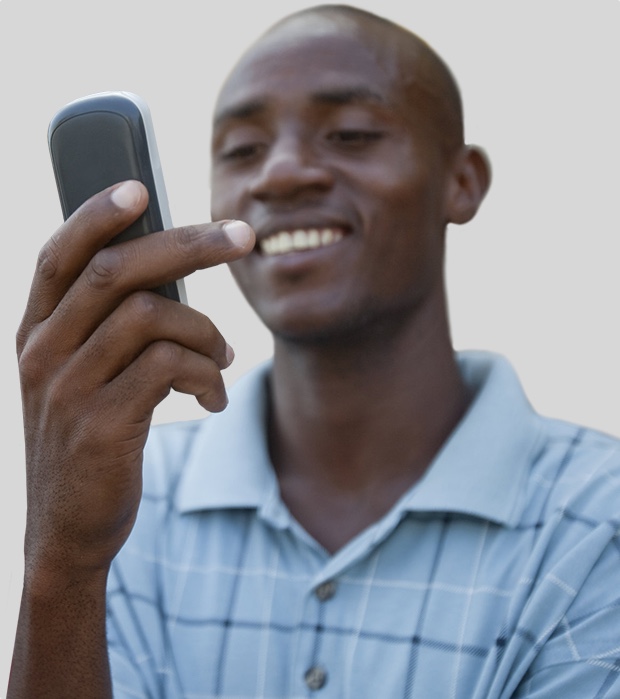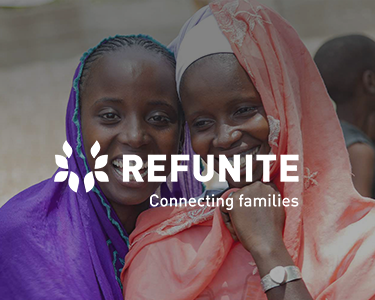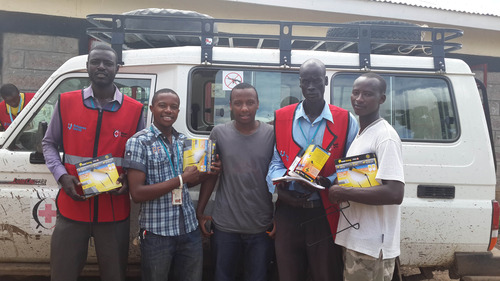
Research and prototyping is deeply embedded in REFUNITE’s work. Kennedy Steven, REFUNITE’s prototyping assistant, reflects on his recent visit to Kakuma Refugee Camp in Kenya.
Two weeks ago, I travelled to Kakuma Refugee Camp to conduct research around health and documentation. Before the trip, I had developed a research question: might there be smarter ways for refugees to store their most important documents? I am thinking about documents that matter: from birth certificates to health records and passports.
Kakuma is home to 125,000 refugees. They come from different countries, such as South Sudan, Somalia and Democratic Republic of the Congo. During their escape from conflict and violence, refugees often bring their most important documents with them, such as their birth certificate or baptism card.
Upon arrival in Kakuma Refugee Camp, refugees get new, important documents, such as an identification document (similar to a national ID issued by the Government.) This document is only given to refugees if their case has been approved. They are also given a food ration card (picture below), which can be used twice a month.
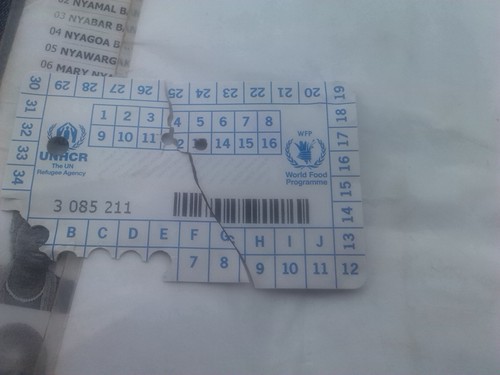
During my stay in Kakuma, I interviewed many refugees in the camp. And through focus groups and roleplaying, I sought to identify challenges and opportunities for better documentation.
I also visited a hospital to get a better understanding of the types of documents that are given to refugees. There are seven clinics and one main hospital in Kakuma. While all refugees have access to the hospital, the hospital only deals with severe cases that clinics are unable to handle.
When a refugee falls sick and is taken to the clinic, the doctor fills out the patient’s details, such as disease symptoms, medicine prescriptions and consultation date in an exercise book.
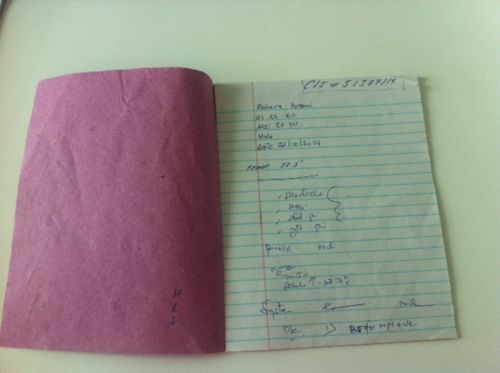
Patients and nurses helped me understand the internal processes. I even got to ‘play’ a patient to a get first-hand experience. Women with children as well as older members of the refugee community participated in the focus group discussions.
Through this process, I learned that refugees are well informed about the papers they need, and where to get them. However, when it comes to saving and storing their most important documents, it gets more challenging.
Kakuma was recently hit by floods, and many homes were destroyed. When natural disaster or conflict strikes, refugees may easily lose or damage their documents. And to make things worse, it takes a long time to replace the lost papers.
In the comings weeks, I will be looking into different technologies that may help refugees store their documents. While Internet connectivity in Kakuma Refugee Camp is spotty, most households own a low-cost mobile phone or a SIM-card.
There are also computer stations in the camp. My assumption is that refugees can benefit from having their documents stored electronically. A couple of examples:
- If important papers are scanned and uploaded onto a computer database, refugees will no longer have to carry around damaged papers or risk losing them.
- When refugees get sick, they have to schedule an appointment with a doctor. Instead of using an old-fashioned book to schedule the appointment, it can be done automatically through new technology. This would also make it easier for medical personnel to know how many cases they have to handle in one day.
- Refugees in camps are exposed to poisonous creatures, such as snakes, scorpions and spiders. In the unfortunate case that they get bitten, they have to go through a very long process to get medical assistance. If there were IT-based tutorials, they would be educated on how to offer basic first aid.
Amidst my busy schedule, I still managed to meet with REFUNITE’s Mobile Outreach Volunteers. I provided them with solar powered mobile chargers that I had carried from Nairobi. The chargers support REFUNITE’s ultimate goal, which is to reconnect separated families through mobile-technology.
I am grateful to the entire team in Kakuma that made this research trip a success.
Connect with Steven and share your ideas! ks@refunite.org
MEDIA CONTACT
Ida Jeng, Director of Global Communications and Strategy. ij@refunite.org
